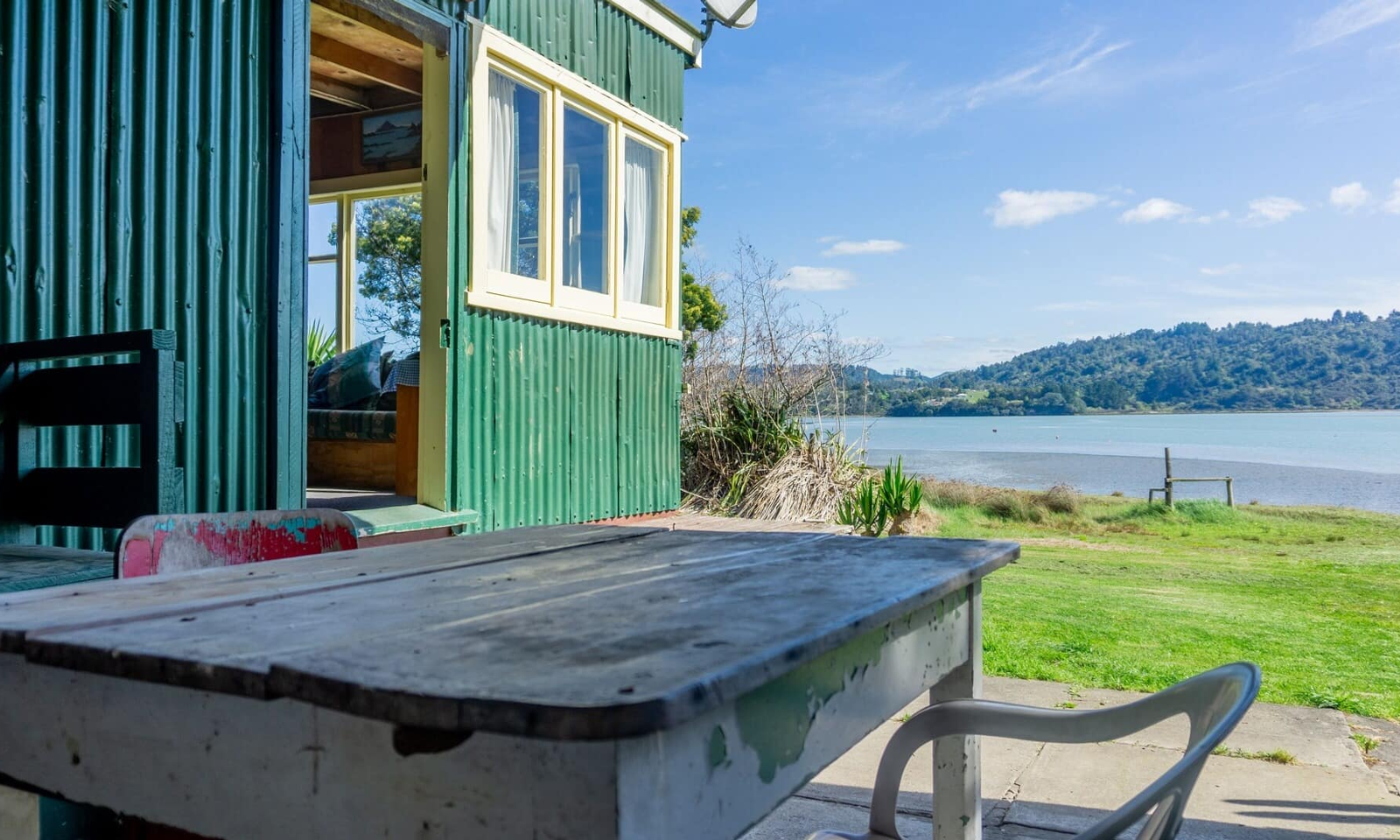
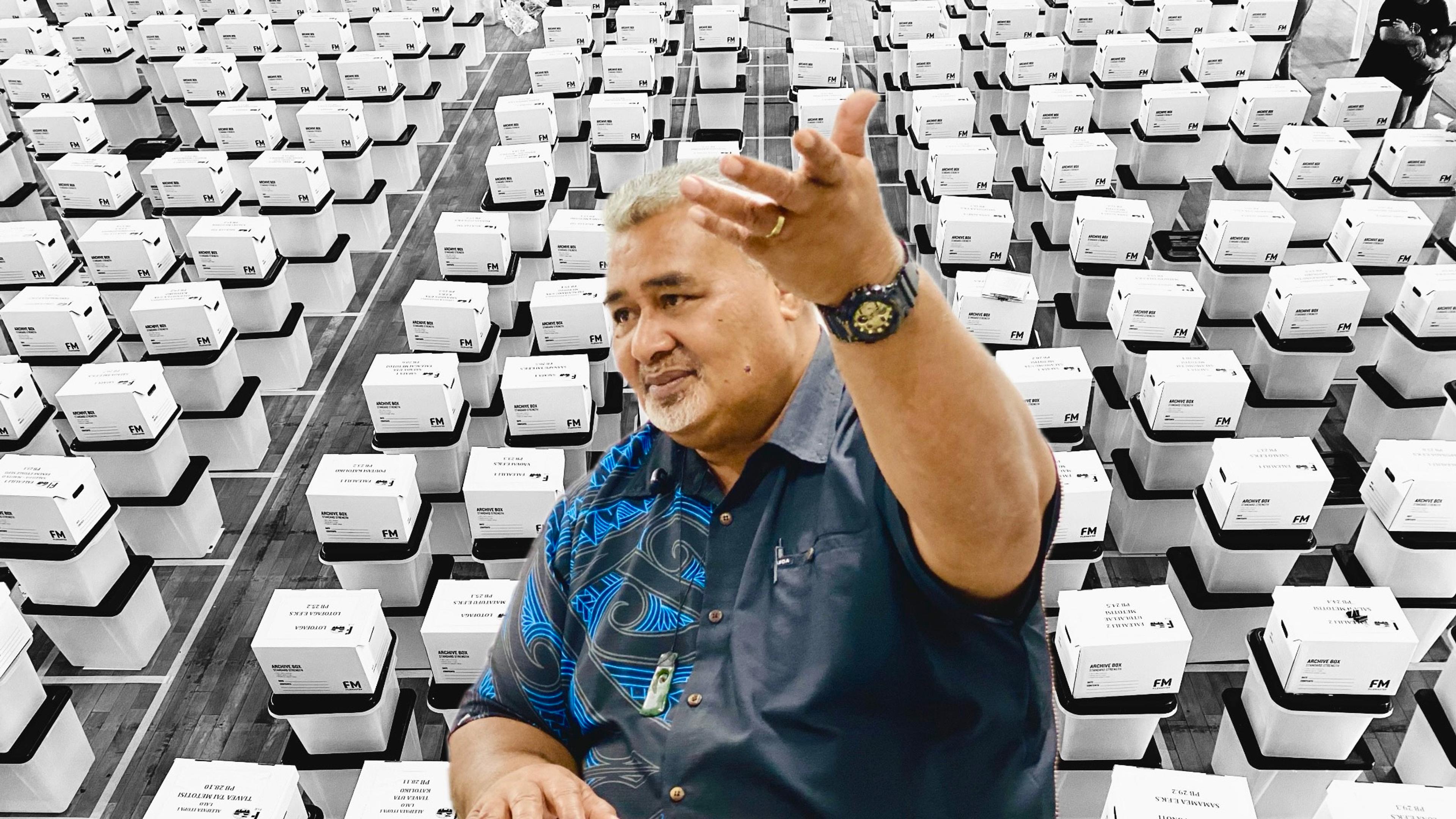
Commissioner Tuiafelolo Toleafoa Alex Stanley says more than 1200 officials will cover more than 400 polling booths across Sāmoa's 50 electoral districts.
Photo/Anetone Sagaga
Sāmoa 2025 election: Secrecy of ballot paramount - official
Electoral Commissioner Tuiafelolo Toleafoa Alex Stanley says preparations are robust, with tamper-proof ballot boxes and over 1200 trained officials.


Memories over miles: South Aucklanders share their favourite holiday getaways



Sāmoa’s snap election, influenced by political and social divides, has seen the Electoral Commissioner Tuiafelolo Toleafoa Alex Stanley report that his office is “well ahead of schedule” in its preparations.
At the close of voter registration on 4 July, a total of 101,981 voters were confirmed across 51 electoral districts, but only 50 districts will participate in the polls. The Faleata II seat in Upolu will not take part after pre-election court challenges disqualified two of its three candidates, leaving the remaining nominee automatically elected as the first legislator confirmed for the 18th Parliament.
Tuiafelolo says more than 1200 polling officials have been trained and will be dispatched across the 418 polling booths during the pre-polling and polling days, with most of the booths located in church halls. The voter roll is heavily concentrated in Upolu, with about 75 per cent of voters across 31 electoral districts, while Savaii’s roll of about 26,000 voters is spread across 20 districts.
At the close of voting, the counting process will be held in two stages. A preliminary count will take place on the night of 29 August, but the votes cast during pre-polling on 27 August and Special Votes will only be counted on 1 September when the official count begins. A Special Vote includes votes cast through mobile booths and by those who live in one district but registered in another. These votes are handled with particular care, with Tuiafelolo saying that voter privacy is paramount, especially after issues that arose during the last election in a smaller district.
“There were issues when they counted, and there were only four votes,” Tuiafelolo says. “It was easy to tell who voted for whom, you see what I mean. So it’s the secrecy of the ballots that we’re concerned about.”
He also confirmed that if the number of expected pre-poll voters falls below 10, no booth will be established. In Lotofaga, where the caretaker Prime Minister, Fiamē Naomi Mata’afa, is running, only seven voters are eligible for pre-polling - they have been advised to vote on Friday instead.
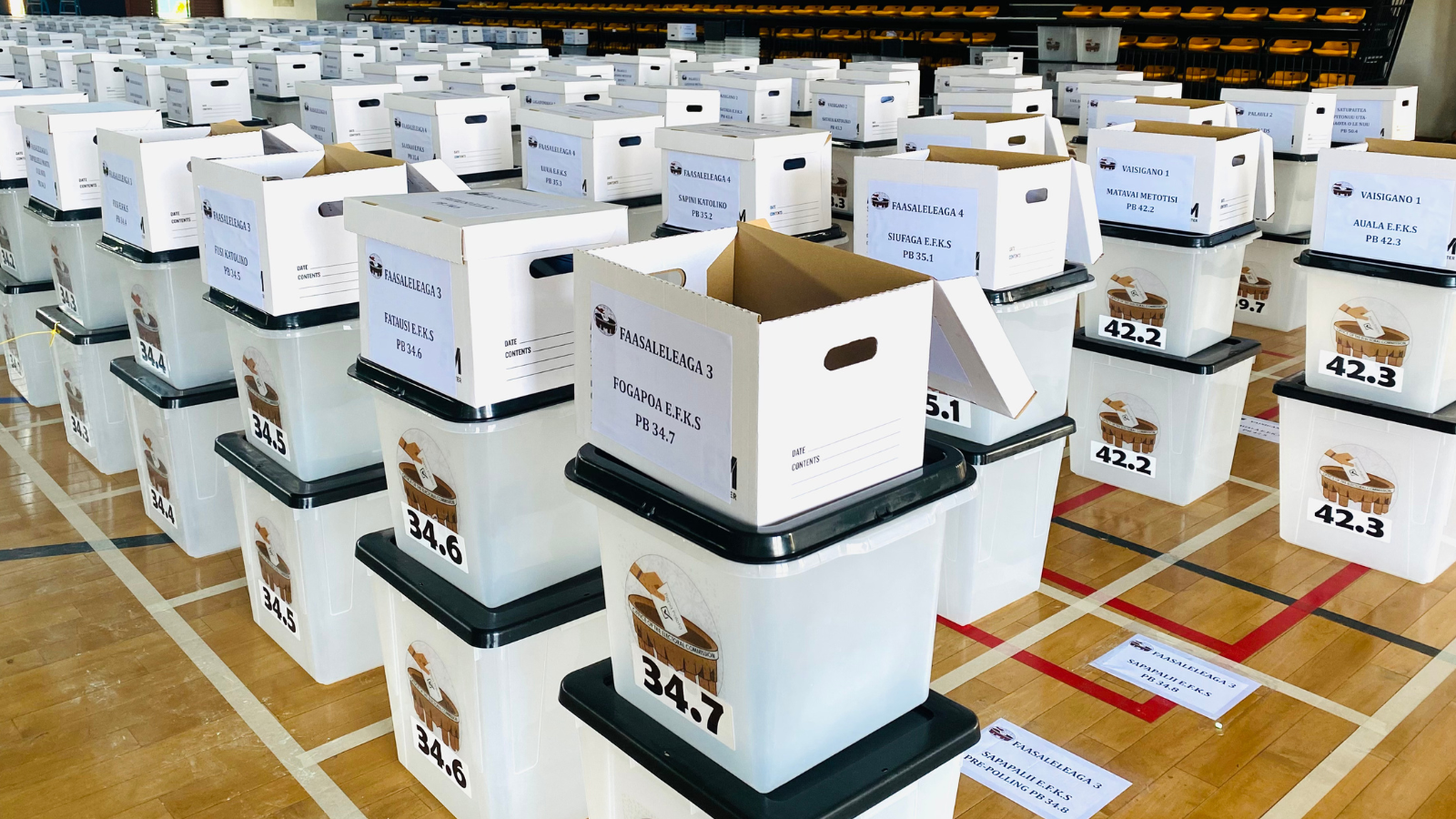
Under Sāmoa law, once ballot boxes are sealed and transferred to police custody, no one else can touch them. Photo/Anetone Sagaga
Sāmoa’s electoral law makes tampering with ballot boxes a serious offence, punishable by fines or imprisonment. Tuiafelolo says any security concerns have been well-addressed. The Commission has introduced new tamper-proof ballot boxes, each fitted with numbered seals.
“Under the law, once the ballot is counted and the boxes are sealed, then it’s under the custody of the Ministry of Police. We don’t touch it anymore.”
Despite the extensive planning, one contentious issue that remains is the participation of Sāmoa’s diaspora. This year, 330 overseas Sāmoans began the online registration process, but only 72 completed biometric enrolment. Political party supporters based outside Sāmoa have long called for a greater say in the country’s affairs, yet participation remains negligible.
Listen to Tuiafelolo Toleafoa Alex Stanley's interview below.
According to New Zealand’s 2018 census, over 180,000 Samoans live in the country, accounting for almost half of all Pacific Islanders. Samoa’s Electoral Commission figures show that 179 voters based in New Zealand tried online registration for the snap election, but only 33 completed the process.
Tuiafelolo says it is not a question of choice but of law. The Electoral Act 2019 requires compulsory registration and residency requirements. Exceptions exist, but for most Sāmoans abroad, voting remains beyond reach unless they travel home to register and complete their biometric data.
Proposed amendments that would have allowed overseas voting through Sāmoan diplomatic missions were never passed by Parliament before it was dissolved earlier this year.
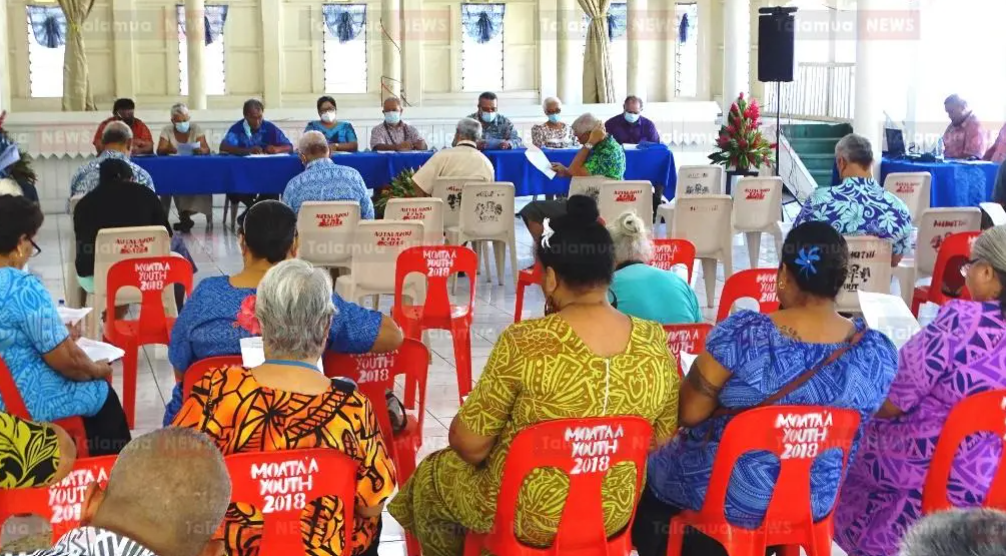
Public consultations were held in 2022 to discuss the issue of voting from overseas. Photo/Talamua Media
“It’s still a bill at the moment,” Tuiafelolo says, adding that the intention was to model it after the practices of countries such as New Zealand and the United States, where citizens abroad can vote at their diplomatic missions.
The debate around diaspora participation raises a deeper question about how the island nation balances its electoral system with constitutional obligations and customary practices. That balance was sorely tested during the 2021 elections, which led to months of legal actions and a constitutional crisis. The crisis resurfaced in 2025 with an internal rift within the ruling party, the failure to pass the annual budget for the coming year, and the eventual dissolution of Parliament.
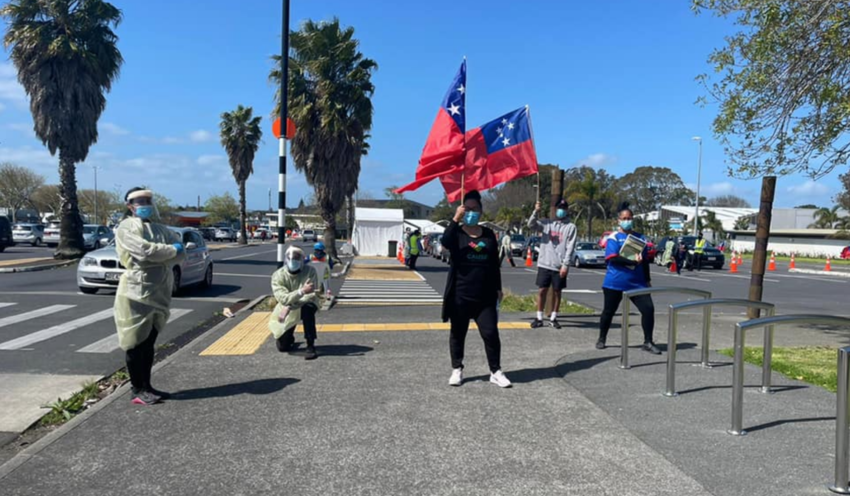
Only 72 overseas-based Sāmoans have completed full registration to vote in the election. Photo/The Cause Collective
At a cost of ST$3.8 million (NZ$2.4 million), and with the caretaker government currently operating on 25 per cent of the usual annual budget, elections are expensive.
“So far, we’ve spent three million (NZ$1.8 million) on the new equipment,” Tuiafelolo says. “We bought tablets, NUC boxes, which are mini servers that communicate from the 400-plus booths to the main server here [in Tuanaimato].”
The equipment will be repurposed after the elections, Tuiafelolo confirms, adding that Cabinet has decided to prioritise the Ministry of Education.
Watch PMN News Senior Reporter Renate Rivers' update from Apia.
Media coverage is encouraged, with Commissioner Tuiafelolo welcoming media scrutiny throughout the process.
“The only rule for you media is that you can’t take any photos of the ballot paper or of a person casting a vote.”
He described the count at Tuanaimato as an open process, one where the media plays a crucial role in informing the public and maintaining trust in the system.
As Sāmoans prepare to cast their ballots, the Commission is confident its new safeguards and open processes will ensure trust in what many see as the most important election in a generation.